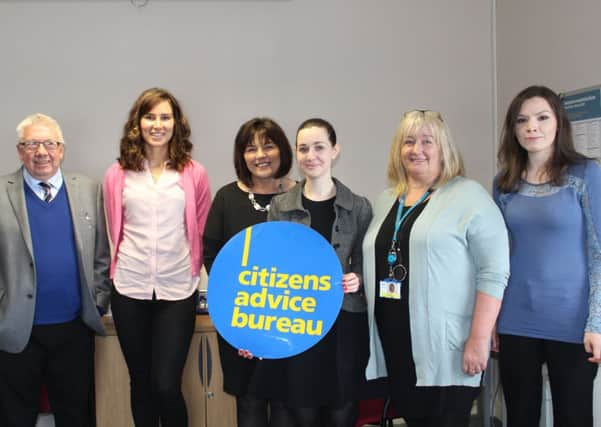Benefits transfer - creating new plan


A three-month long consultation the length and breadth of the country is reaching its last few weeks and as part of that effort Scotland’s Social Security Minister Jeane Freeman recently visited Stornoway to gather the experiences and opinions of Islanders.
So far around 102 consultation events have taken place in a myriad of communities across Scotland, to ask them what they would like to see happen, as the plan to redevelop the benefits system in Scotland is conceived and readied for legislation.
Advertisement
Hide AdAdvertisement
Hide AdThe transfer of benefits, which will include disability living allowance, carers and attendance allowance, fuel poverty payments and industrial benefits will relate to around 15% of the UK Government’s spend on social security, but will actually impact 1.4m people in Scotland.
As part of her visit to the Islands the Minister visited Comhairle nan Eilean Siar and the Lewis Citizens Advice Bureau, as well as talking with Western Isles MSP Alasdair Allan on the particular issues which are faced by people in the Islands.
Talking about the visit Western Isles MSP Alasdair Allan said: “Responsibility for some benefits, including most payments relating to disability, will be transferred from Westminster to Holyrood next year, and it’s important that we devise a system that takes account of the specific challenges that island communities face.”
The consultation tour has highlighted many of the same concerns from different areas.
Advertisement
Hide AdAdvertisement
Hide AdMs Freeman explained: “We have done about 102 of these events across Scotland and the main issues, where people want to see improvements, is to the basic information about what they are entitled to.
“With respect to the disability benefit it is around the assessment process and how fair that is in terms of understanding an individual’s condition or disability. And in particular being able to cope with conditions that fluctuate, for example MS, and mental health issues.”
She added: “In the Islands the points have been very well made about the distance people may have to travel, even if called to Stornoway for an assessment, which might mean an overnight stay or additional costs.
“When we are designing the new system we are going to have to think of how we take account of that so we are not imposing additional burdens simply because the system has not been designed carefully enough.
Advertisement
Hide AdAdvertisement
Hide Ad“Also internet access and people’s confidence about using the internet, so we are thinking about ways of being in touch with people and of them being able to get in touch with us, such as freephone telephone, and also more personal one to one contact.
“We need to change our way of thinking on this, the support that will be offered is support that people are entitled to.
“Social security is an investment we make in ourselves and each other and none of us know the day we might need that support ourselves.”
The consultation ends at the end of October, but the Minister stressed that this is only the first step, as the exercise continues with the design of the new system and drafting of the legislation, consultation will continue with people in receipt of benefits, the people currently delivering the system and with groups such as Citizen’s Advice.
Advertisement
Hide AdAdvertisement
Hide AdIt is planned that the legislation will be introduced to the Scottish Parliament before next summer, with the time being taken to get the process right.
“Part of the difficulty with this exercise is the scale and the complexity of it because we only have 15% of the total UK welfare spend,” Ms Freeman explained, highlighting: “Whatever we have in Scotland has to work with the 85% that the UK Government will be responsible for.”